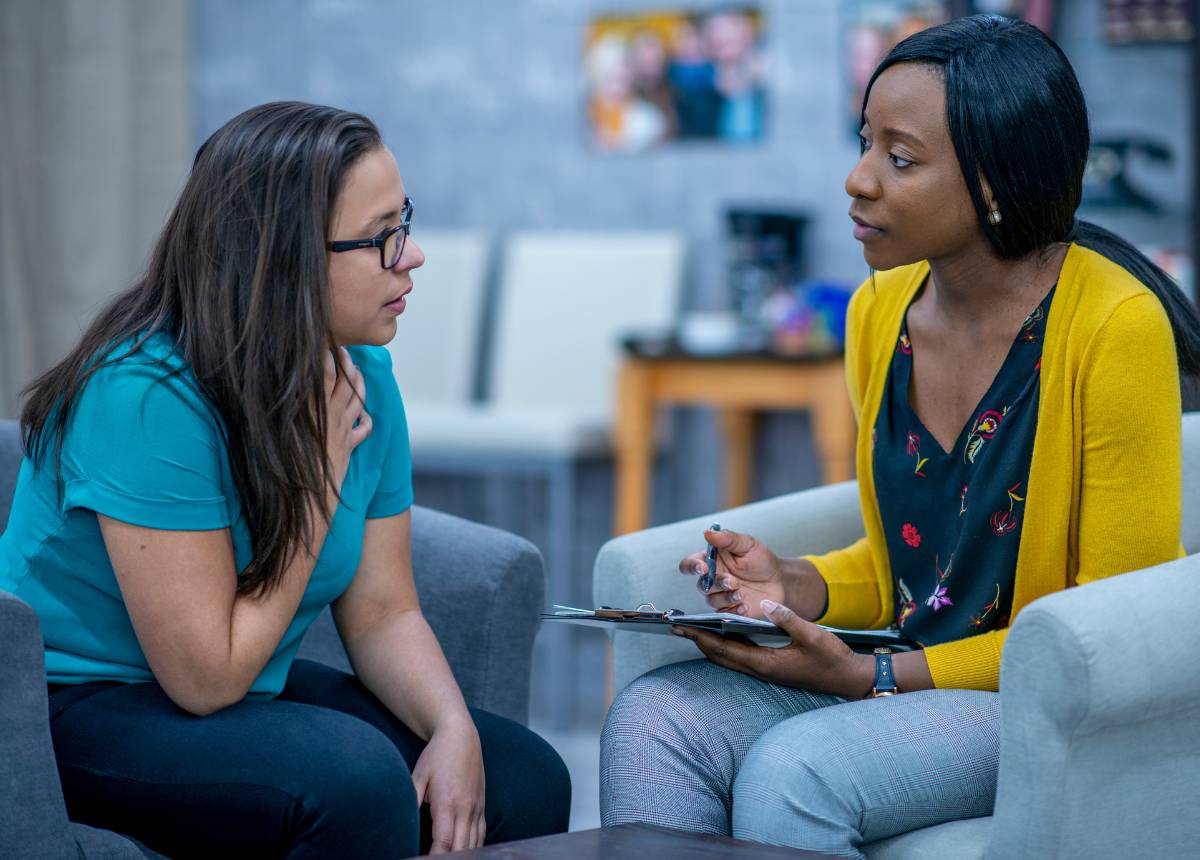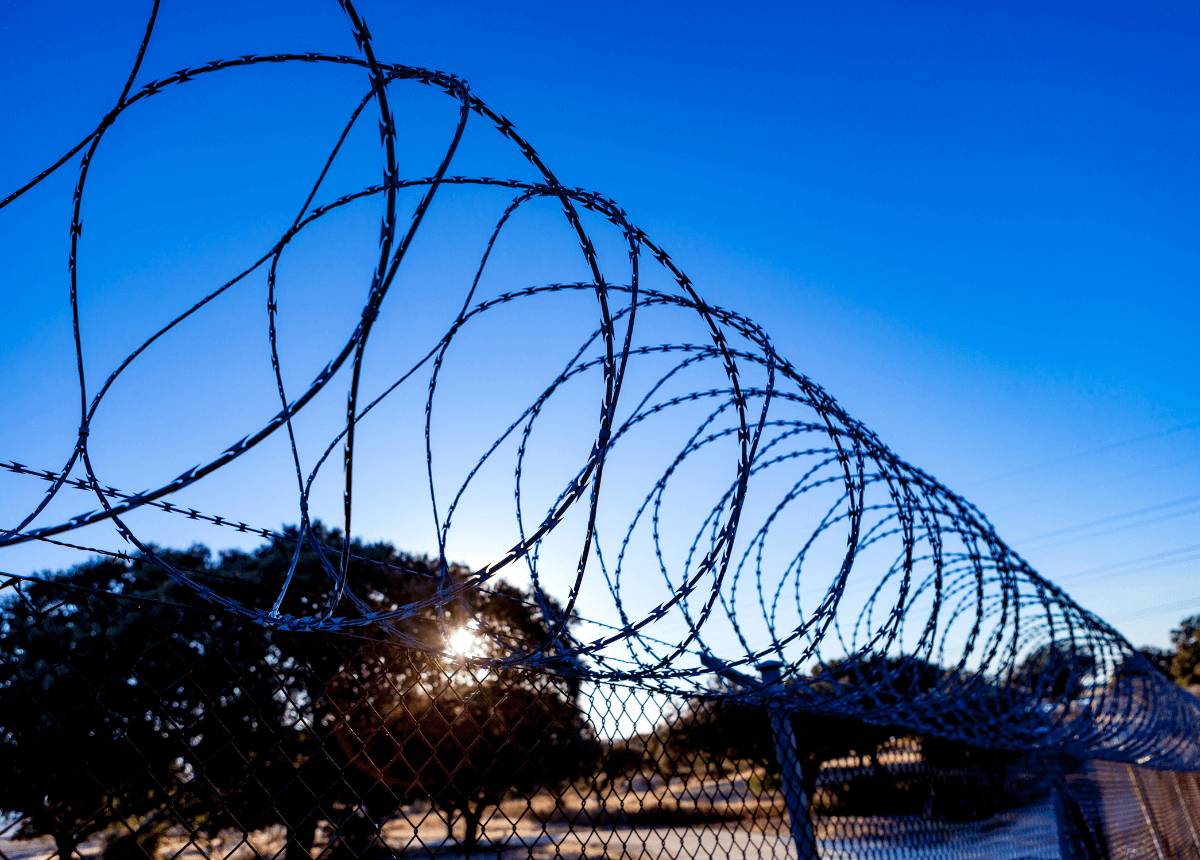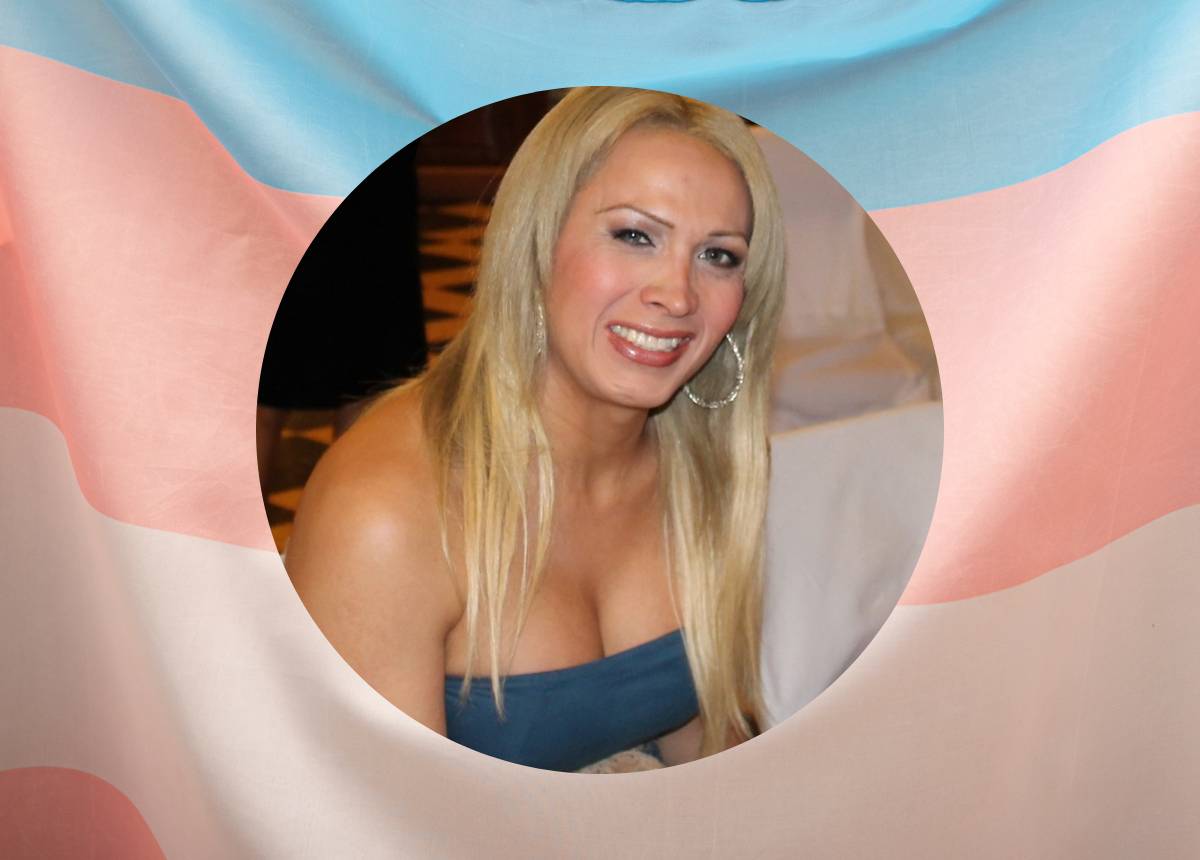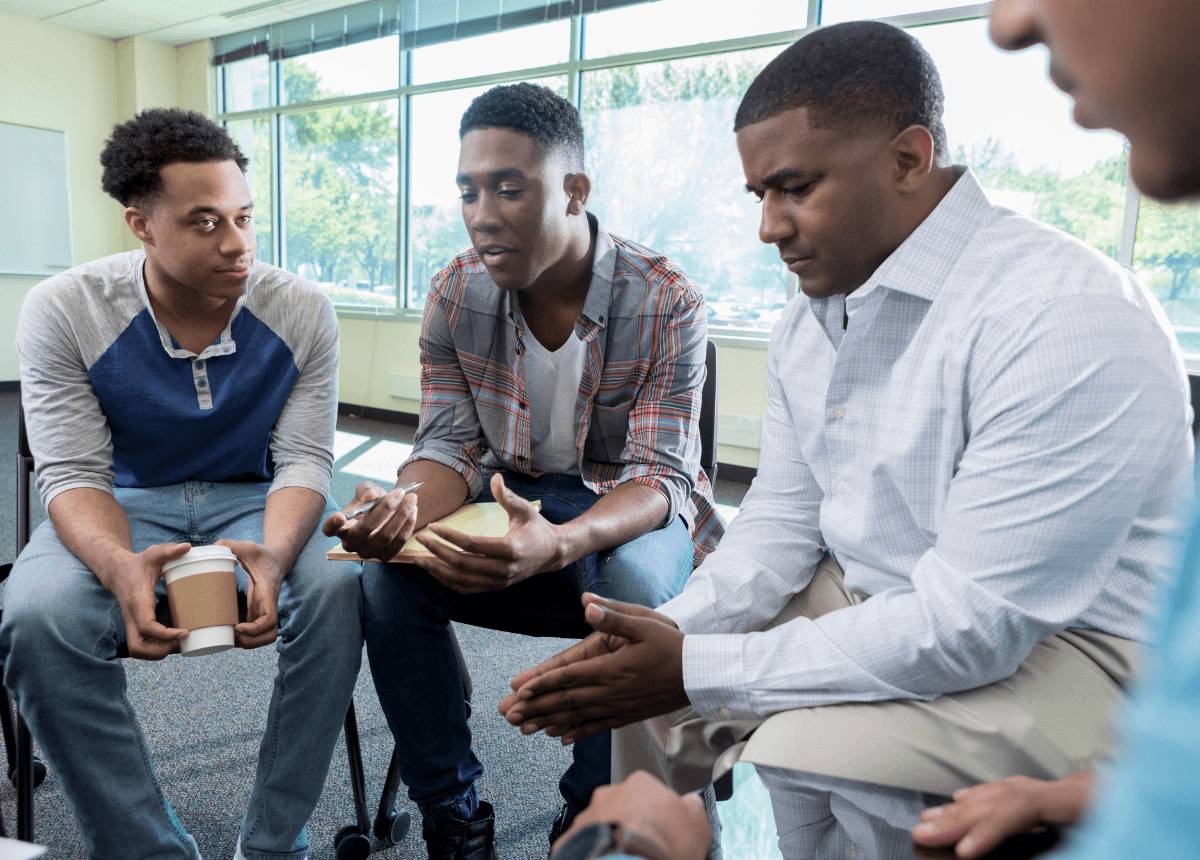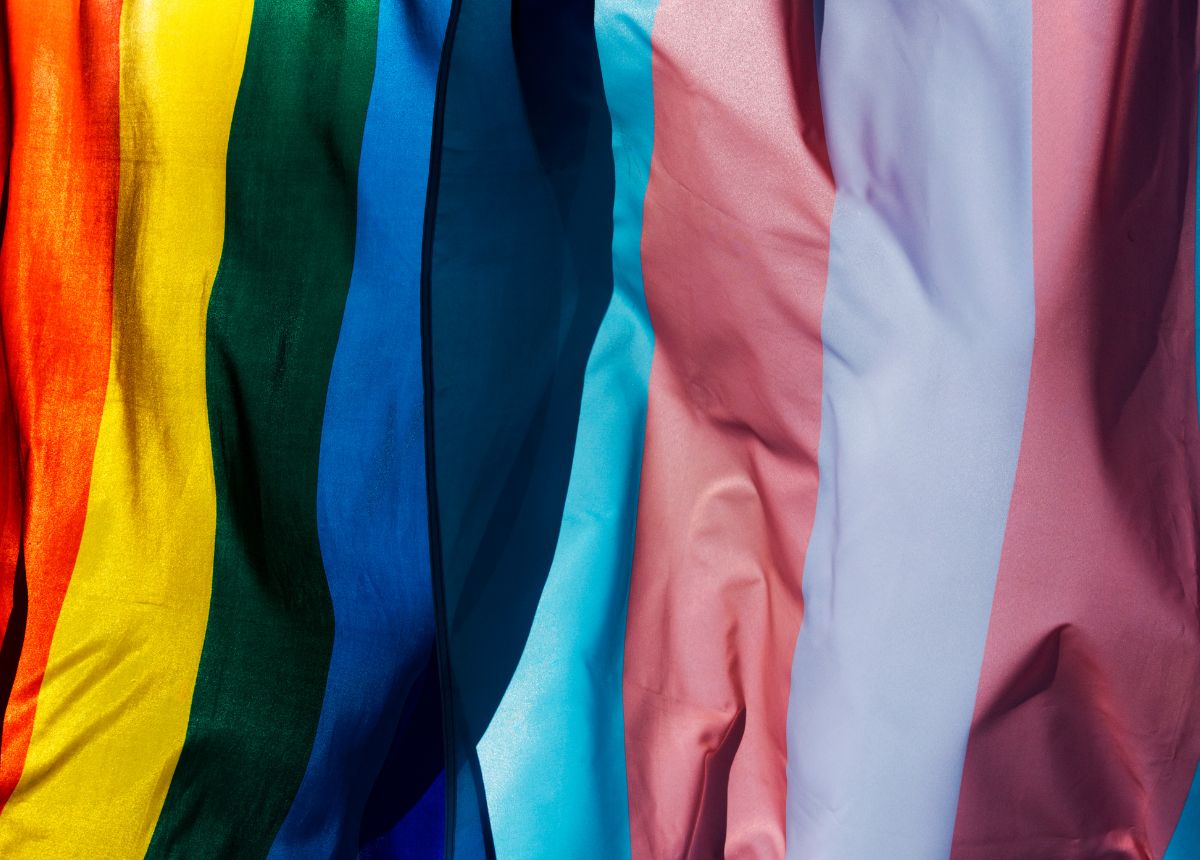"It's like comparing night and day": community-based alternatives to detention
Imagine a world in which people trying to make the UK their home were met with a supportive environment, not a hostile one. A world where people without immigration status were supported to understand their options and make informed decisions about their next steps, rather than being detained and threatened with removal.
This approach is not only possible, but tried and tested within the UK. Following a recommendation from Stephen Shaw’s second report on immigration detention in 2018, the Home Office commissioned a series of pilot projects to test community-based “alternatives to detention”, both of which have now concluded and been subject to an independent evaluation.
The results of both initiatives are clear. Supporting people who might otherwise be detained to navigate the asylum and immigration system in the community instead:
- is better for their mental health and wellbeing
- costs less than detaining them, and
- does not affect compliance with Home Office directives.
We must remember that detaining people going through the asylum and immigration system is a choice our government makes. It’s a choice that destroys lives, tears communities apart and has devastating consequences for those who are locked up with no idea when they might be set free. It puts LGBTQI+ people in a dangerous situation where they face bullying, harassment and abuse.
Nobody benefits from detention, except the private contractors who are paid millions of pounds a year to run the UK’s detention centres. But we could all benefit from an approach that sees people supported in our communities and empowered to make decisions that are right for them. For LGBTQI+ people who have fled persecution and could otherwise be detained here, it would mean having the chance to live openly and with dignity while they claim asylum in the UK.
With an alternative on the table that is compassionate, humane and cost-effective we cannot let this government continue its plans to re-open Campsfield and Haslar detention centres and tender for three new centres as well.
Help spread the word about compassionate alternatives to detention by emailing your MP.
Read on to learn more about the two pilot projects.
King’s Arms Project – Refugee and Migrant Advice Service
Last month UNHCR published the evaluation of a pilot project delivered by the King’s Arms Project (KAP) in Bedford. Between 2020 and 2022, 84 people without immigration status who were liable to detention were supported in the community through KAP’s Refugee and Migrant Advice Service (RMAS).
People taking part in the pilot received free, high-quality legal counselling and one-to-one support from a caseworker. That one-to-one support was flexible and tailored to individual needs – for example help with accessing healthcare, setting up bank accounts, social inclusion or accessing training/volunteer opportunities.
By the end of the pilot, 80% of people had been offered viable options to regularise their immigration status. They experienced better self-esteem and wellbeing, a better understanding of their legal options, and increased confidence and ability to access entitlements. As a result they were able to make informed decisions about their situation.
NatCen, who evaluated the project, estimated the pilot to be two-thirds cheaper than it would have been to detain the individuals supported.
“It’s like comparing day and night. King’s Arms Project is like the day where the sun is out and my life before was like in the night, without stars.”
Action Foundation – Action Access
RMAS was preceded by Action Access, delivered by the Action Foundation in Newcastle from 2019 – 2021. That project supported women seeking asylum in the UK, most of whom were detained in Yarl’s Wood prior to joining the pilot. As with RMAS, the women were given legal counselling and one-to-one support, however the Action Access pilot also provided them with shared accommodation and subsistence payments.
Unsurprisingly, the women moved from detention to this project experienced immediate improvements to their health and wellbeing. They experienced greater stability while on the pilot, and were better able to understand their options and make informed decisions about their asylum cases.
Despite being hampered by the coronavirus pandemic and having to run below capacity, Action Access was cheaper per participant per night than detention. In the evaluation NatCen estimated that potential savings from extending the pilot (e.g. running it at capacity and entering into longer leases to save on rents) could see the cost come down to less than half the cost of detaining someone.
“In detention, you don’t have this kind of positive atmosphere. You just want to cry. You just want to stop eating. You just want to kill yourself. This is because you are so in trouble there, right. Then, when you come out, it’s like everything is going to be nice again… the atmosphere is very different, and I think you recover yourself.”
"I am proud of the work we did together"
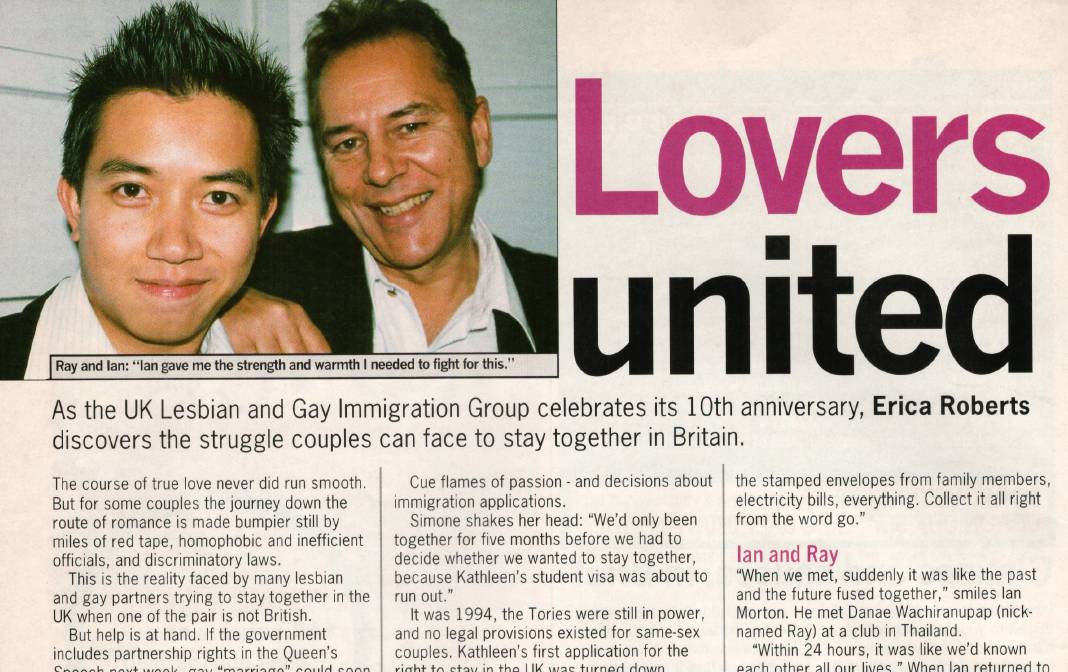
To celebrate our 30th anniversary, we spoke to many of the people who are an important part of our history. Below, Ian, ex-Chair and volunteer, told us what the organisation means to him.
I’ve been involved with the organisation for 25 years, since 1998. At the time it was called the Stonewall Immigration Group (SIG). I’d met the person who was to become my life partner, from Thailand, and we were looking at ways to stay together. We began looking for people who could help us and heard about the SIG telephone helpline. After a couple of initial phone calls, I went along to some of the in-person meetings, where LGBTQI+ couples met with lawyers for legal advice. These sessions were very helpful for my own personal situation, but I also became more interested in the Group’s underlying mission to change immigration law. Before I knew it, I started volunteering.
As a volunteer, I was able to meet both service users and the volunteer solicitors every month, both in the meetings and socially afterwards. It was hugely reassuring to know that so many people were confronting similar issues and as a bonus I met people who have become very good friends. Eventually I took more of a role in the running of the organisation, becoming a committee member. In summer 2000, when we suddenly found ourselves without an office, I built the original, very basic website in 3 weeks and rebuilt it twice in subsequent years. I didn’t have any previous training, experience or knowledge of website design, but I really enjoyed the challenge, and it was very satisfying when some of the people who came to the Saturday meetings told us how critical it had been to their understanding of their situation. I am told that many couples were able to make straightforward applications without using a solicitor, with the help of the website and forum.
“Though the initial purpose of the group had been achieved, it didn’t mean our work was done. Very quickly it was decided, given our established and growing profile, to refocus the mission of the group towards the support of LGBTQI+ people seeking asylum.”
The work of the Committee in those early days involved coordination of the effort to change the law and planning for the future of the organisation. The Unmarried Partners Concession which was announced not long after New Labour took office in 1997, became law in October 2000, effectively achieving immigration equality for same-sex couples and of course equality then came more widely with Civil Partnerships in 2005. Though the initial purpose of the group had been achieved, it didn’t mean our work was done. Very quickly it was decided, given our established and growing profile, to refocus the mission of the group towards the support of LGBTQI+ people seeking asylum. I became Chair just as the Asylum Support Project was set up with a part time project manager.
In early 2004, SIG rebranded to become the UK Gay and Lesbian Immigration Group (UKLGIG) and achieved charitable status. For many years we depended on the generosity of our founders such as Matthew Davies, Mark Watson and Wesley Gryk; by 2006, thanks to increasingly effective fundraising, we were in a position to hire our first Executive Director, Dr. Sebastian Rocca, and we moved into our first permanent office in 2007.
It was a very stimulating time to be involved with the organisation; there were huge challenges, but we were encouraged by a growing number of successes. I was always conscious, however, that neither I nor my partner had any lived experience of being an LGBTQI+ refugee or someone seeking asylum. After 2 or 3 years as chair, I decided to step aside for someone with more relevant experience, although I continued helping to run partnership meetings and maintained the group website until 2020.
When I first volunteered, I was on duty once a week on the phone lines and once a month at the Saturday meetings. Becoming involved with the organisation like this gave me a new, positive purpose; it was a real pleasure to do something good for people who needed support. I am proud of the work we did together. We and our core group of volunteer solicitors weren’t just campaigners who aimed to be a nuisance to the government. We developed a thoughtful style of gentle persuasion, education, and training. We understood that we couldn’t just scream and shout, despite the injustices all around us. We often faced political, public and tabloid backlash, but we kept going; we achieved so much by maintaining a standard we could sustain through quiet dedication and diligence.
“My personal connection with the organisation has been a liberating and highly positive experience, which I continue to value and treasure.”
Of course, not everything has always gone according to plan. Public support for LGBTQI+ migrants isn’t commonly flavour of the month, and over the years much of the right-wing press has had no problem reminding us of that. But such biased coverage also meant that good people heard about us and sought us out to show their support.
Being part of the charity has been a great privilege for me. It has given me the opportunity for experiences I would have been unlikely to encounter otherwise, meeting people from a diverse range of backgrounds. Former executive director Erin Power called us “unlikely friends”. Such friendships have opened my mind, almost certainly been closer as a result, and taken me in new, exciting directions.
UKLGIG became Rainbow Migration after a rebrand in 2020, and I am proud to see them continue to go from strength to strength. My personal connection with the organisation has been a liberating and highly positive experience, which I continue to value and treasure.
"Rainbow Migration has a lot to celebrate!"
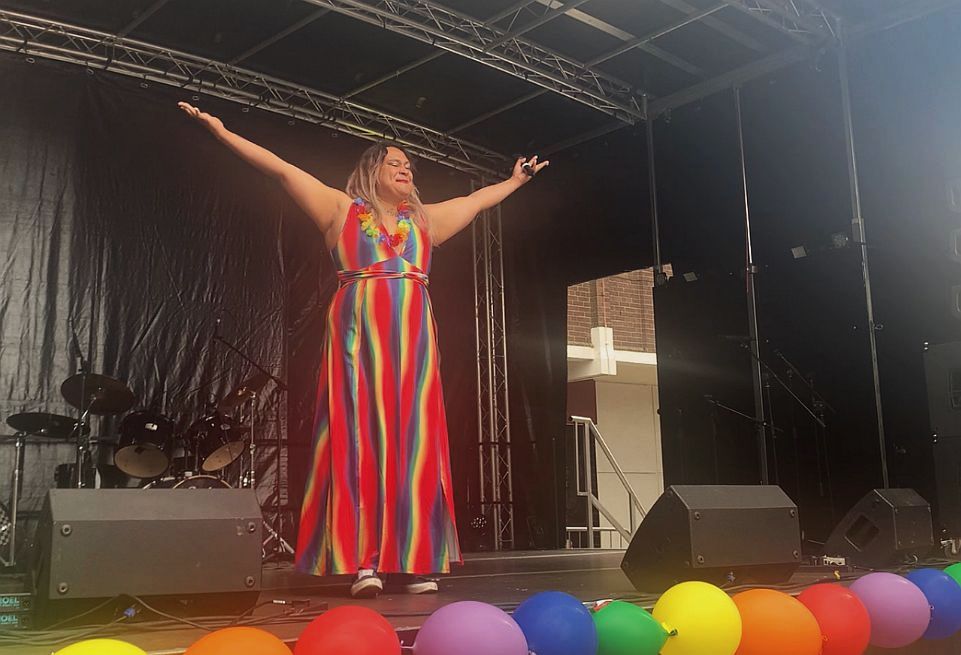
To celebrate our 30th anniversary, we spoke to many of the people who are an important part of our history. Below, Arthur Britney, a member of our campaigns advisory group, told us what Rainbow Migration means to them.
I first came across Rainbow Migration soon after I arrived in the UK in 2017. At the time I was identifying as a gay man. One of the very first things I did was research support for LGBTQI+ people seeking asylum. I found the Rainbow Migration website, which was so helpful and informative, and contacted them about their group meetings. Knowing an organisation like this existed, with in-person support, made me feel safer.
I went to a meeting in Birmingham and met a support worker from Rainbow Migration. Even though my English was terrible, I was treated with so much kindness. The support worker was really helpful; she explained what I needed to do and helped me feel less panicked. When you start the asylum process, you’re not an expert, you don’t know anything. you don’t understand what will happen. I was very scared. The support worker really calmed me down and reassured me. It was exactly what I needed. I had just escaped my country. The support worker explained the asylum process to me and advised me to contact the Home Office.
Thanks to the Rainbow Migration support worker, I contacted the Home Office, who moved me to Liverpool, and I began to feel a bit happier. Having faced persecution and discrimination in my country of origin, I was able to start exploring my gender identity in the UK. I felt free in Liverpool; I was able to wear what I wanted and to really be myself. Finally, I felt safe to come out as non-binary. I got granted refugee status in 2020. I was the first person to be granted asylum in the UK on the basis of being non-binary.
“Rainbow Migration has a lot to celebrate, and I am proud to be part of that. It Is so important to so many people and should be proud of all it does.”
In 2022 I began working with Rainbow Migration as a volunteer for their No Pride In Detention campaign. Kiki, one of the trustees, asked me if I wanted to be part of the campaigns advisory group; I was so grateful for the opportunity. As part of the group, I’ve contributed to the production of the campaign film, spoken at National Student Pride, recorded a podcast, and helped out at events. It has given me the chance to learn professional skills, to have a say about issues important to me, to express myself, and meet lots of new people. Being part of the campaign has also led to new opportunities for collaboration and has really helped me grow as a person. Being part of No Pride In Detention has had such a positive impact on my development.
Rainbow Migration has a lot to celebrate, and I am proud to be part of that. We are on the right side of history. While rights are consistently under threat, in the UK, and the rest of the world, we will always fight to protect LGBTQI+ people who are seeking safety. It’s scary to go through uncertain times, but organisations like Rainbow Migration make such a difference to so many people’s lives. In the future, I really hope the organisation can keep expanding its services for trans people in the asylum system. Without that support, many would be invisible, and even more marginalised and isolated than they already are. Rainbow Migration Is so important to so many people and should be proud of all it does.
We are celebrating our 30th anniversary: "I love being part of it"
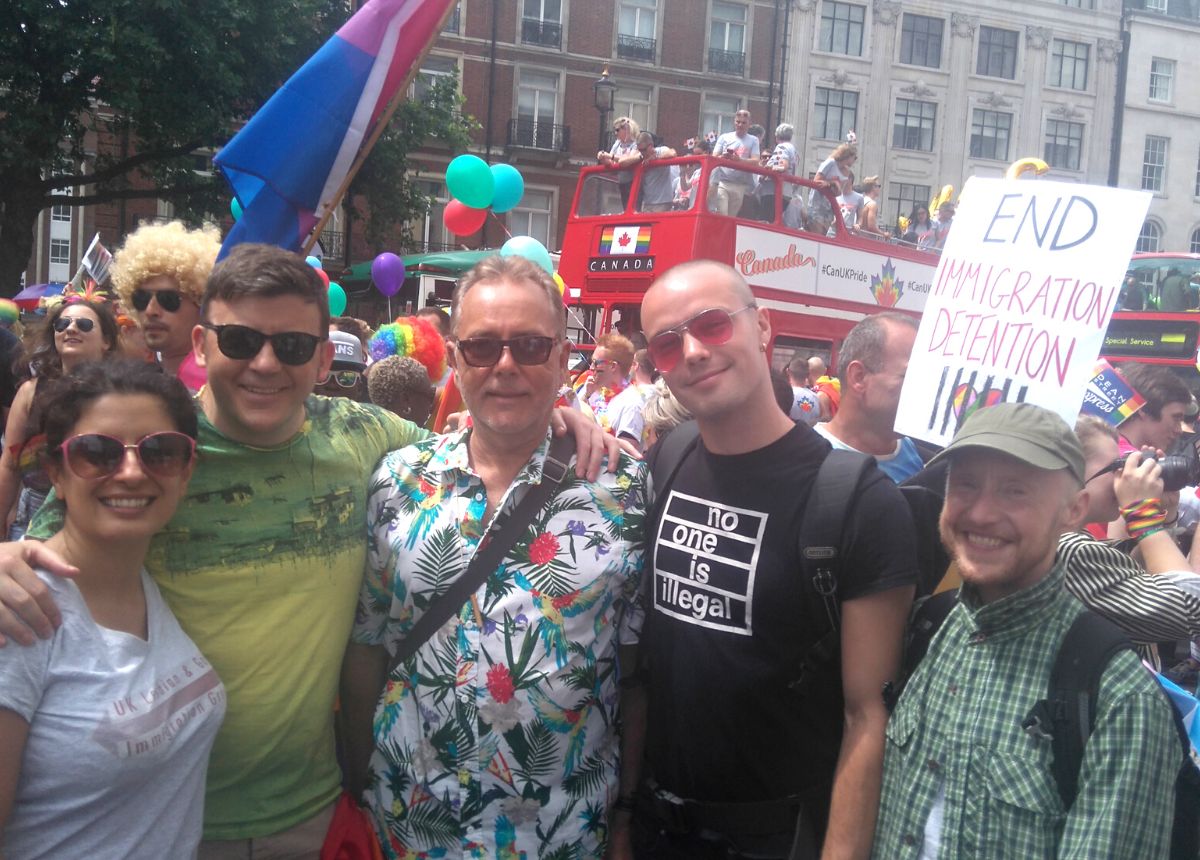
To celebrate our 30th anniversary, we spoke to many of the people who are an important part of our history. Joe has been with the organisation for over fifteen years, and told us what working for Rainbow Migration means to him.
I first heard about Rainbow Migration in May 2007, after I started transitioning and began to support other trans men. I had a passion for human rights issues and was attending a trans support group, eventually joining their committee. I helped out by answering enquiry emails. One email was from a trans man who wanted help with their transition, but who also needed to claim asylum. I was unsure how to help someone in the asylum system, so I sought advice elsewhere. I contacted Stephen Whittle, an LGBTQI+ activist and trans man, and he suggested the Rainbow Migration legal advice meetings, so I accompanied the service user to one of these meetings. It was in a big room, with many other LGBTQI+ people claiming asylum present. Volunteer lawyers explained the process, and afterwards we had a private conversation with a solicitor. Thanks to their advice, I helped him start the application process.
The meeting was a real eye-opener for me. I was blown away by how awful and dehumanising the process is for LGBTQI+ people. I was dismayed by how much evidence people needed to provide to “prove” they are LGBTQI+. It was a wake-up call and convinced me to get more involved with supporting LGBTQI+ people seeking asylum, so I began volunteering with Rainbow Migration. I went along to the meetings to help Sebastian Rocca, Erin Power, and Jill Power. They were all great to work with. I eventually began to support a few more trans men who were claiming asylum. It took a long time, but they all got granted refugee status.
“I am particularly proud of our work influencing the new ruling in 2009 that meant LGBTQI+ people who come here seeking safety couldn’t just be told to “go home and hide”. That decision had a huge impact on the people we support.”
In 2013 I was made redundant; at the same time Erin decided to leave Rainbow Migration. With more time on my hands, I took on more voluntary duties. Erin trained me in bookkeeping, admin, and organising meetings. At the time everything was being run by the trustees, especially Tim Barndon, Jackie Peirce, and Bojana Asanovic. They were very proactive and a great source of support. Eventually they hired a new Executive Director, Paul Dillane, and he secured the funding to offer me paid employment.
Working at Rainbow Migration means a lot to me. There’s something about being a refugee that touches me on a very deep level. For people to lose everything they know and love, to not have a home, and yet still have the will to come and start again and build a future in a completely new place and go through a difficult system, says so much about the strength refugees possess. Supporting refugees alongside such a great team really gives me something to feel good about.
I am particularly proud of our work influencing the new ruling in 2009 that meant LGBTQI+ people who come here seeking safety couldn’t just be told to “go home and hide”. That decision had a huge impact on the people we support.
“I love working for Rainbow Migration. It’s very emotional work for me, and I’m so happy to see the organisation continue to grow. Leila and the trustees have done an amazing job attracting a fantastic group of professionals who know how to do their job so well. I love being part of it and am so grateful to be here.”
I am also so proud of how much we’ve grown in recent years, especially since Leila Zadeh was made Executive Director in 2017, and Dane became our Support Services Manager. They’ve built a stronger support structure, and made it safer for everyone, services users and staff alike. They have improved our services, which are more organised and supportive for our service users. Moving offices, to a more private space, has also improved safeguarding. Securing new roles, such as a Legal Officer, has made a tremendous difference as well. I was also so impressed with the way the organisation moved to an online space for remote working during the COVID lockdown. We worked together as a team to maintain support for our service users during a particularly difficult time.
While we have so much to be proud of from the last 30 years, there are many things I hope we can celebrate in the future. I really wish for a safe route for people coming here. We need the government to realise that we are not a fortress. People have the right to live in a place that isn’t going to harm them for being who they are. We need to make space for people. We need to care about each other more.
I love working for Rainbow Migration. It’s very emotional work for me, and I’m so happy to see the organisation continue to grow. The new policies, safeguarding measures, and the wellbeing activities have all been such welcome, positive developments in the last few years. Leila and the trustees have done an amazing job attracting a fantastic group of professionals who know how to do their job so well. I love being part of it and am so grateful to be here.
4 ways in which you can support LGBTQI+ people seeking asylum
During Pride Month it’s important to remember that the fight for LGBTQI+ rights is far from over.
One group that often faces particularly difficult challenges is LGBTQI+ people seeking protection in the UK. They have fled persecution and discrimination in their home countries due to their sexual orientation or gender identity and are seeking safety and a chance to rebuild their lives here.
Instead of welcoming them and giving them the support they need, this government is telling them that they’ll be punished for coming here, locked up and sent away to another country, perhaps one they’ve never heard of, and that may be dangerous for LGBTQI+ people.
If you are also outraged by the way LGBTQI+ people seeking asylum are treated by this government, here are 4 ways in which you can do something for them during this month – it takes less than a minute per action. Make sure to share this with as many friends as possible!
1. Sign our petition and tell the Prime Minister to ditch his cruel and unworkable Refugee Ban Bill
If the Refugee Ban Bill becomes law, LGBTQI+ people who come here seeking protection and safety will face a high probability of being placed in immigration detention. In detention LGBTQI+ people face bullying, harassment and abuse, with serious consequences for their mental health. Following detention they could be sent to countries that are dangerous for LGBTQI+ people and where they don’t have any connections or support. Places like Rwanda, where LGBTQI+ people face discrimination and violence, as Innocent explained.
It’s not too late for the Prime Minister to stop this – sign our petition to show these cruel plans do not represent us.
2. Ask your MP to oppose LGBTQI+ detention
The number of people being detained in this country has been climbing, and this government still plans to open more detention centres and seek greater powers to detain. Together with the University of Brighton we recently released a new pilot study into LGBTQI+ experiences of immigration detention since September 2016, which indicates that LGBTQI+ people continue to face harassment, bullying and deteriorating mental health while in immigration detention.
Click below to ask your MP if they will oppose LGBTQI+ detention.
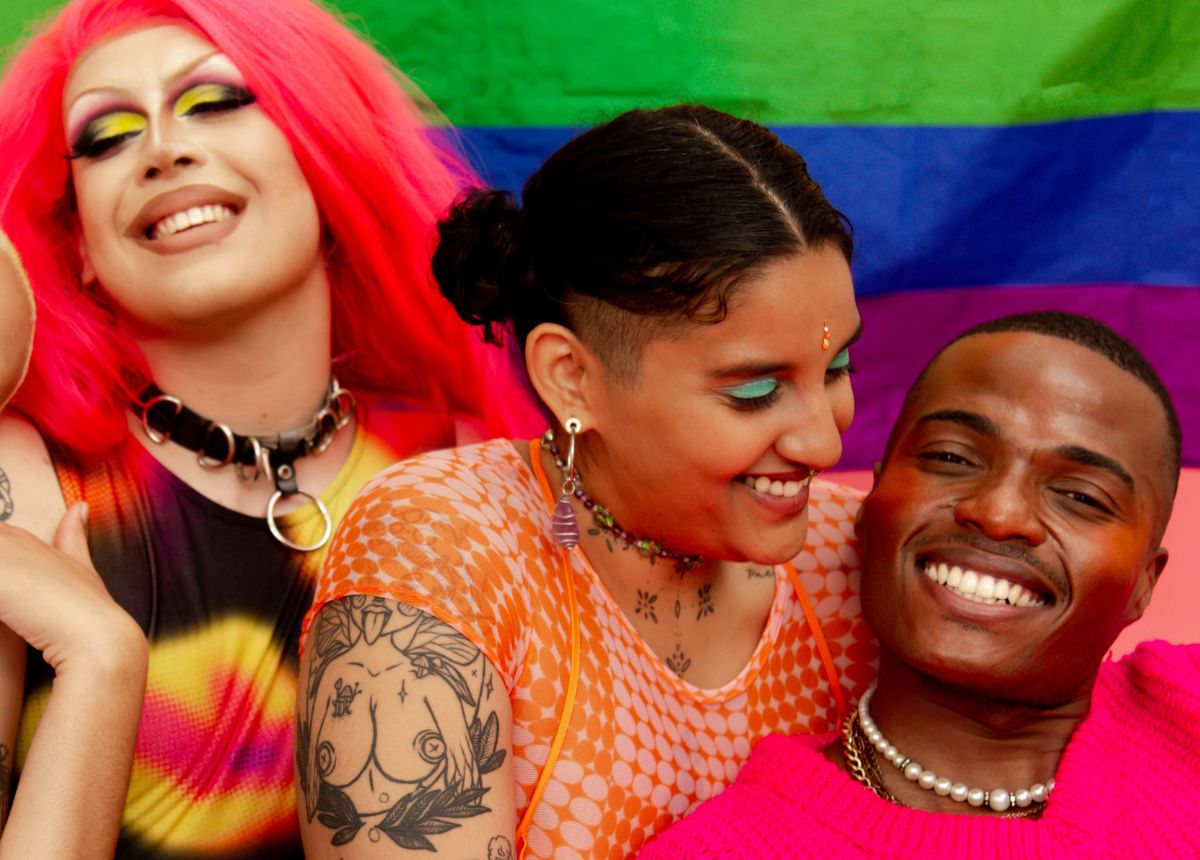
3. Join our ‘No Pride in Detention’ campaign
You can also join our ‘No Pride in Detention’ campaign . Let’s come together and make sure no LGBTQI+ person is locked up and subjected to violence and abuse in detention. Add your name to say enough is enough: it’s time to #EndLGBTQIDetention.
4. Donate some much needed money
We’re working in a challenging environment at the moment, where LGBTQI+ people seeking asylum are not made to feel welcome in the UK and government policies are putting people’s lives at risk.
Donating today could support:
- A one-to-one emotional support session to help someone feel less isolated
- Sanitary and hygiene supplies and food vouchers for a person facing destitution
- Interpreting services so that we can support speakers of any language.
Understanding immigration detention
Immigration detention is a complex issue that does not always get the attention that a scandal on this scale deserves. As a result, many people are unaware of how it operates and who is affected. We often get asked what immigration detention is, why it is so dangerous for LGBTQI+ people, and how people can help. This is the first of a two-part blog answering some of the most frequently asked questions we get on social media about our No Pride in Detention campaign.
How many detention centres are there, and where are they?
There are currently seven immigration detention centres (officially known as immigration removal centres) in the UK:
-
- Brook House, Gatwick, London
- Colnbrook, Middlesex
- Derwentside, County Durham
- Dungavel House, South Lanarkshire, Scotland
- Harmondsworth, Middlesex
- Tinsley House, Gatwick, London
- Yarl’s Wood, Bedfordshire
But in 2022, this government announced plans to reopen two more centres: in Campsfield, in Oxfordshire, and Haslar in Gosport, Hampshire. This will allow the government to hold up to an extra thousand people in the immigration detention estate.
The government also operates a number of “short term holding facilities”. These are places to detain those who have just arrived in the UK for shorter periods of time while the Home Office assesses their case.
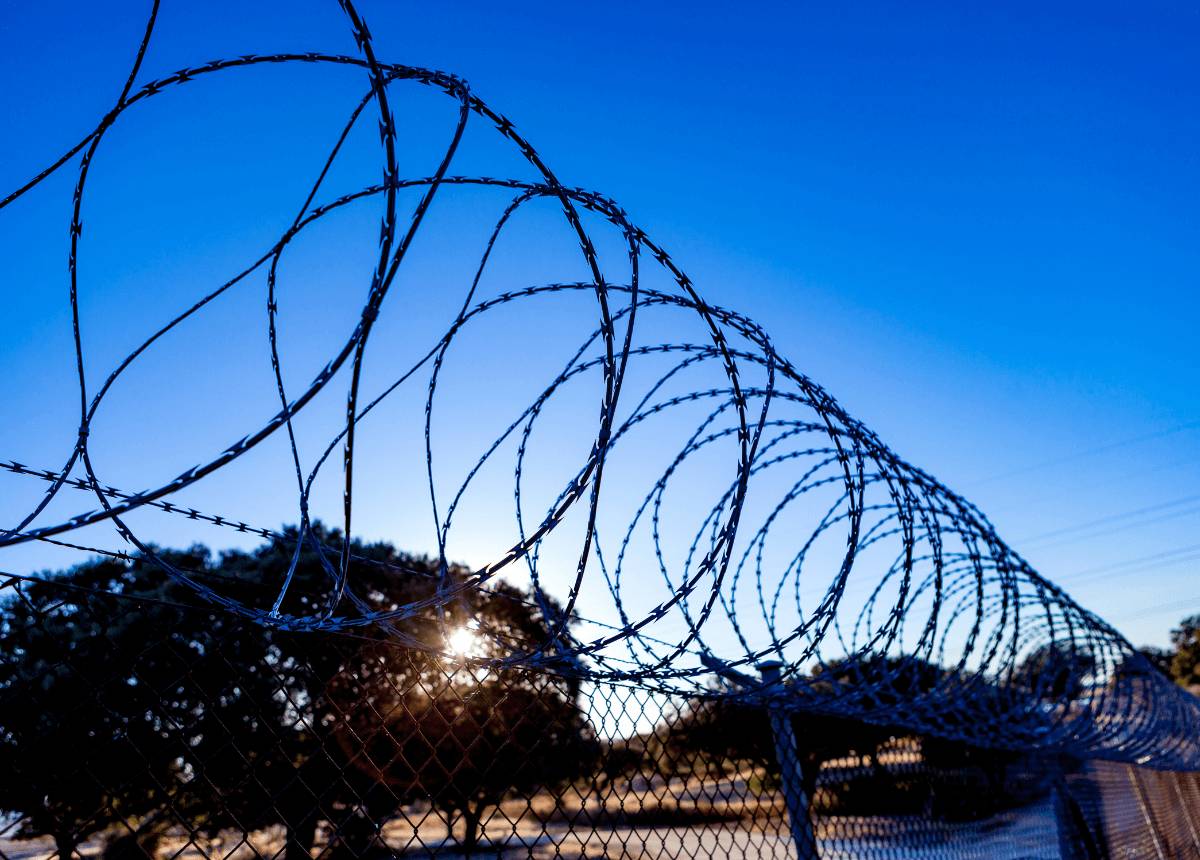
Would it be discriminatory to only keep LGBTQI+ people out of detention?
Like many other organisations and people in society, we think that detention is unjust and damaging to everyone. But evidence shows that LGBTQI+ people (alongside other groups like pregnant women and survivors of torture) are at even greater risk of harm when detained.
We want to see an end to detention in the UK, but while it remains a part of the UK immigration system, we want anyone at additional risk of harm to be kept out of it. The government already has a list of characteristics or experiences that may indicate a person is at greater risk of harm if detained, and that list already includes trans and intersex people. We want the whole LGBTQI+ community to be included in recognition of the risks they face.
There is evidence that LGBTQI+ people are particularly unsafe in detention and should not be detained. They experience bullying, harassment and abuse. This can be from members of staff or from other people who have been detained, who may hold the very same homophobic and transphobic attitudes that LGBTQI+ people seeking asylum are trying to flee.
The situation is urgent. If this government’s new Refugee Ban Bill becomes law, there will be a drastic increase in the number of people detained, as a punishment for seeking asylum. To protect the wellbeing of LGBTQI+ people who are seeking safety in the UK, it is vital to end LGBTQI+ detention.
What are the specific dangers that LGBTQI+ people face within detention?
In immigration detention, LGBTQI+ people face high levels of harassment, abuse and violence from others who are detained, or even staff, who ought to be protecting them. Staff in detention centres are supposed to keep people who are detained safe, yet many lack knowledge of LGBTQI+ specific needs, and might even have discriminatory views of their own.
In a recent pilot study, LGBTQI+ people in detention spoke about receiving verbal homophobic abuse from staff, and about staff failing to stop physical attacks from others in detention. Others who were interviewed did not report the LGBTQI-phobic abuse they had experienced as they did not feel they would be believed or supported by staff.
Facing abuse in detention can retraumatise LGBTQI+ people. In our No Safe Refuge study, Gasha from Cameroon said; “I got flashbacks of everything I’ve been through in Africa. I’ve been free for two or three years and then here I am back in a cell”.
If you don’t want immigration detention for LGBTQI+ people, what do you think about detention in general? Is there another or better way to deal with asylum claims, or people who might need to be removed?
Immigration detention is inhumane and expensive, causing long-term damage to the lives of those detained and tearing families apart. Although detention should normally only be used when someone is about to be removed from the UK, in the year ending September 2022, of the people leaving detention, 83% were released back into the community. Supporting people to get help with their immigration status while living in the community can help them to resolve their cases without the human and economic cost that detention brings.
At the moment, community-based case management approaches are being tested across Europe. The first project to report back in the UK found that providing vulnerable women who were seeking asylum with shared accommodation, intensive support and legal advice in the community:
-
- was significantly better for their health and wellbeing
- could cost half as much as keeping someone in detention, and
- did not decrease compliance with the immigration system
Although this government has officially accepted the recommendations from the evaluation of this pilot, instead of following the evidence they are increasing the use of detention.
With an expanding detention estate and new legislation that significantly extends the government’s powers to detain, we need to protect those most at risk more than ever.
If you want to take action, you can ask your MP to oppose LGBTQI+ detention. Or you can read the second part of the blog.
Help direct the future of Rainbow Migration
***This opportunity has now closed***
Would you like to join our board of trustees? At Rainbow Migration we are currently on the lookout for one or two new trustees.
Our current board consists of people with a wide range of backgrounds, skills and experiences, including lived experience of the asylum system, law (public law and human rights), academia, communications, fundraising, and finance.
We’re interested in hearing about any skills and experience you can bring to the table, especially if you:
-
- have experience of involvement with people that access support services
- have experience in safeguarding
- are tech savvy
- have helped organisations become anti-racist
But don’t worry if you don’t – there are plenty of other valuable skills and experiences that we’re looking for too! We encourage applications from people from all walks of life, and would particularly like to hear from you if you:
-
- have been through the asylum system
- are disabled
- are neurodivergent
- are trans
Still unsure whether this opportunity is for you or not? Here are some frequently asked questions that might help you make a decision.
So what will I be doing?
Trustees are legally responsible for Rainbow Migration. Your duties will include:
-
- Setting strategy. Our trustees have recently set our strategy for 2023-25 – joining the Board at this time means making sure we deliver on the strategy
- Ensuring we abide by our constitution, follow the law, and act in line with our values and policies
- Making good use of our money and resources
- Considering and mitigating risks
- Reporting to the Charity Commission
These are some of the matters trustees have discussed in their last few meetings:
-
- HR, including staff salaries, pensions and wellbeing leave
- Our finances, including how we spent money in 2022 and our cashflow in 2023
- Organisational policies including safeguarding, consideration of criminal offences, health and safety, and environment and sustainability
- How changes in law and government policy could affect our service users and our work
What if I don’t have experience as a trustee? Can I still apply?
You absolutely can. We will support you to develop in the role. For example, we can ‘buddy you up’ with an existing trustee that you can meet regularly to prepare for board meetings. We also provide training.
Will I be able to work with service users?
The role of trustees is to govern the charity and ensure we are meeting the purpose for which we exist. You won’t have much involvement in the day-to-day work for the charity, so contact with service users will be limited.
I don’t have a computer. Is that a problem?
We don’t want technology to be a barrier to becoming a trustee. It’s helpful if you have a smartphone, at least, so that you have regular access to emails and can connect to meetings on Zoom. We can provide training if you need to learn how to use Word or Excel, for example. Please apply and we can talk about how we can help make sure you can participate fully.
Can I become a trustee if I’m applying for asylum?
We can only accept applications from people with leave to remain in the UK or UK citizenship. We would be happy to consider an application from you to become a trustee when we next recruit if you have secured leave to remain by then.
Why Trans Day of Visibility is so important
Trans Day of Visibility takes place on March 31 each year, to celebrate trans and non-binary people, and raise awareness of discrimination faced by trans people worldwide.
Sasha Taylor, from Guatemala, went through the asylum system in the UK a few years ago. She has kindly shared her thoughts on how the asylum system could be improved and why it is so important to celebrate Trans Day of Visibility.
What would you like to see changed in the current UK asylum system to make it more inclusive of trans people?
Firstly, the waiting time to give us an answer to our asylum application. I waited more than two years to receive an answer, which made my depression, anxiety and post trauma disorder so much worse. I received counselling, group therapy, and NHS medication. Lots of people don’t get even that support. I have been able to manage my mental health, and now have a healthy life. I am very grateful for that, but there are still moments when my mental health suffers. This means it can take longer to re-integrate into society and improve ourselves personally and professionally. We need to be good to ourselves, and stay positive, so we can look forward and move on.
Second, trans people seeking asylum need access to education. For example, English classes will help people seeking asylum integrate into society. It’s important to note that 99% of LGBT refugees, especially trans people, do not have access to education. They face discrimination because of their gender identity, and lack opportunities, economical resources or official Identification to make the most of educational resources. It took me one year and six months for a school to accept me so I could study English language, and I had to ask for the intervention of a social worker to help me get a place. It is important to understand that learning the language of the country helps you develop your confidence and integration in the society; it opens doors to a better life.
Third, we need more access to support workers. They inform us so much, and teach us about our rights and obligations in this country. I was able to have one, because of my type of case, but I know many people do not receive that support and they don’t know anything about those topics. It is necessary to recognise our own human rights, but they also go hand in hand with our obligations and responsibilities too, and that makes us all be a better citizen. It is really important to engage with that because it makes us all more tolerant, and we can move forward together as a society. It can help show politicians that we are human beings, rational and intelligent, that we are not ignorant, or animals that they can move or send from one place to another. Politicians, and society, need more empathy and sensitivity.
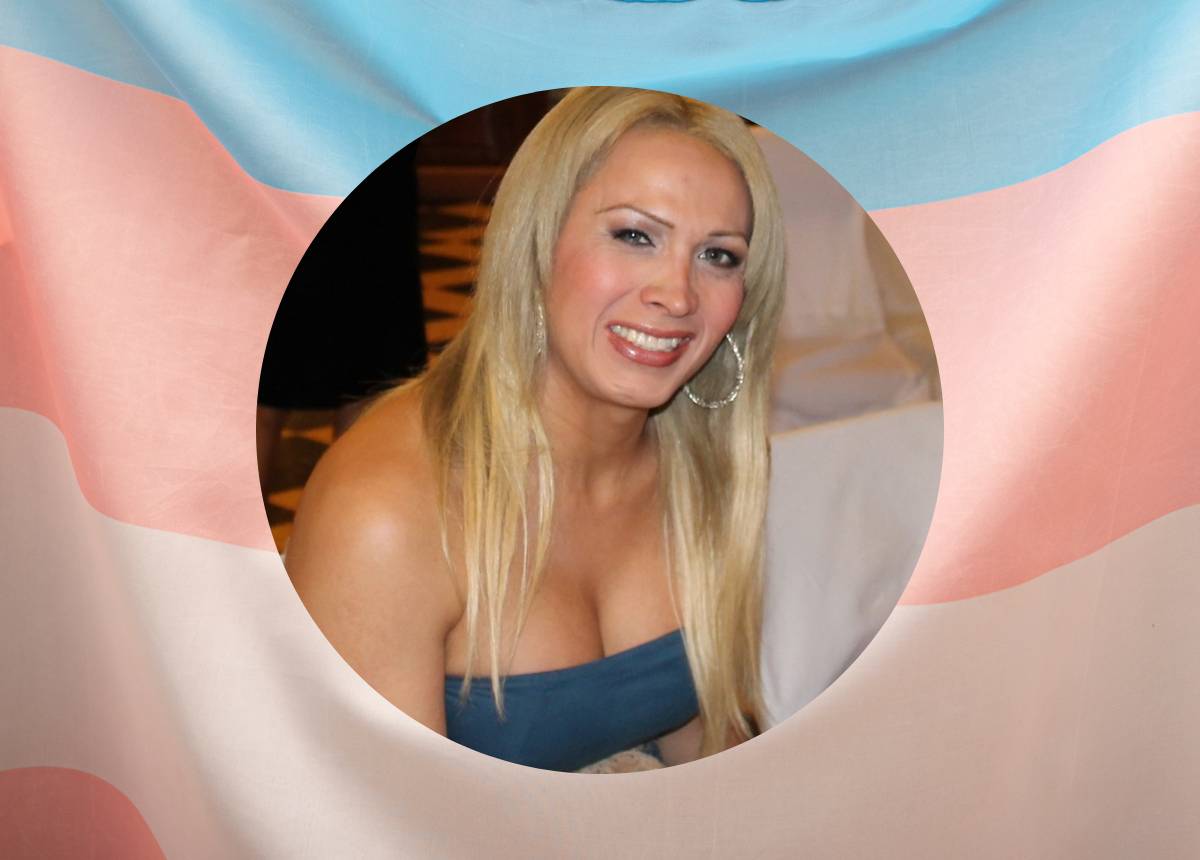
Why do you think it is important to celebrate Trans Day of Visibility?
In many countries, lots of LGBT people are murdered each year. This is especially true for trans people, as they often have a more visible identity. They are particularly subject to violence, attacks and murders.
Trans Day of Visibility is so important, but we need more than a one-day celebration. It is an opportunity for politicians, society, and the world in general, to know that trans people are human beings like any other, 365 days a year. We have physical, intellectual and emotional capacities like anyone else. If we are given the right tools to live our lives, and the necessary protection of our human rights, we can be part of this society, and we can develop and move forward with equality, respect, and peace.
That’s why it is necessary for politicians to make new legislation, and adapt the laws, so there is justice, inclusion, tolerance and respect for all. It would create a healthier, safer, more inclusive, and humane social environment for all of us, and future generations of trans people, in this country and anywhere in the world.
What does a Support Worker at Rainbow Migration do?
Our team of Support Workers provide emotional and practical support to lesbian, gay, bisexual, trans, queer, and intersex people, who are going through the UK asylum and immigration system. We spoke to one of them, Stuart, who explained what Support Workers do, and why their work is so important.
What kind of issues are LGBTQI+ people in the asylum system specifically facing?
LGBTQI+ people seeking asylum face particular risks. One of the biggest issues is living conditions. LGBTQI+ people are often housed in inappropriate accommodation, with people who are LGBTQI-phobic.
LGBTQI+ people also must ‘prove’ their sexual orientation and gender identity for their asylum application, but this can be very challenging. LGBTQI+ people are sometimes disbelieved by the Home Office, which often wants straightforward, traditional stories of “coming out”, but most of our service users have had to live secret lives as they are fleeing dangerous and homophobic societies. Or the Home Office might expect our service users to provide very specific evidence, such as being in a relationship. They are often isolated which means they aren’t part of an organisation and don’t have LGBTQI+ friends.
Often, they are fleeing persecution in their home country, and come to the UK seeking safety. As they have often had to hide their sexual orientation and gender identity, it can be very difficult for them to provide any evidence they are LGBTQI+. They might also need to avoid other people from their country, because they might be at risk of facing the LGBTQI-phobic abuse they are fleeing.
This means that LGBTQI+ people in the asylum system in the UK need specific support and safeguarding throughout the asylum process, which we aim to provide for them.
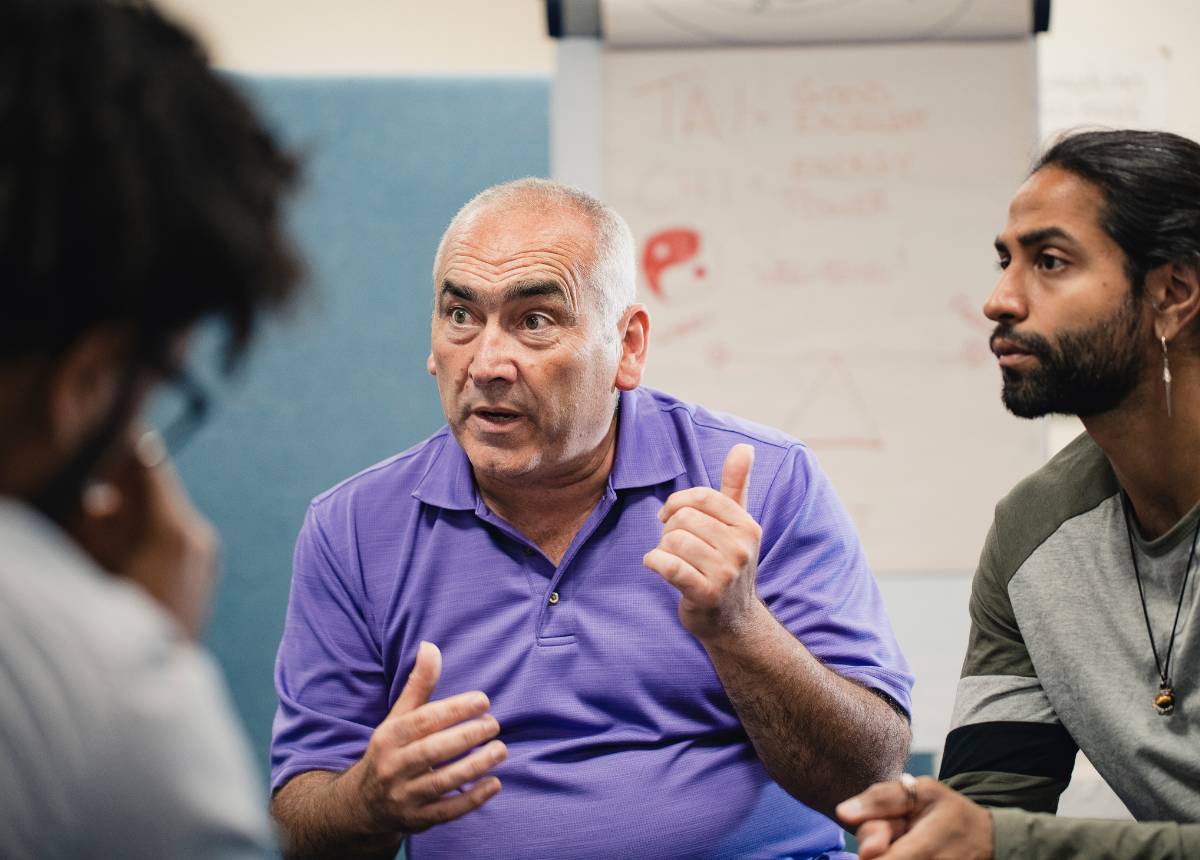
What does a Support Worker at Rainbow Migration do?
Primarily, we provide one-on-one emotional support. We also have men’s, women’s and trans support groups. We meet, in person, twice a month. This is an opportunity for our service users to meet other people in similar situations, and to share our good or bad news with each other. It’s a way of building a support network, and it’s a really important part of our service.
Generally, our service users are very isolated. The pandemic made that worse. We are here to talk to them. They are often new to the UK and don’t know many people. Often, they keep their sexual orientation, gender identity, and their asylum status to themselves. Many are used to having to hide who they are, having faced a lot of stigma both in their home countries and here in the UK. They are often traumatised and may find it difficult to talk to strangers in a Home Office interview. We help them deal with what can be very stressful situations.
We help our service users access safe housing and healthcare. We talk to them about mental health, and if we need to, find them a therapist or counsellor, or make sure they have access to the right medication. Sometimes we cover their costs for healthcare, or essential purchases such as hygiene products or food.
We also have a legal team to guide them through the asylum process, and they help them find legal representation. We refer our service users to legal aid solicitors, or for pro-bono advice. We also have monthly partnership sessions, where pro-bono solicitors offer free advice to LGBTQI+ couples who need support when one or both partners need a visa to stay in the UK, as the process for couples is different.
All our services are free, confidential, and available before and during their asylum claim.
What does a typical day for a Support Worker look like?
I book calls and have catchups with service users. Most of my service users don’t have many people to talk to, so it’s important I can be there for them. Sometimes I have emergencies, such as someone being made homeless, or someone urgently needing a solicitor. Many of my service users feel very low and are having mental health crises; so, I take lots of time each day to be as much of a support to them as possible. This can be in person, over the phone, or by email. Many feel unheard, invisible, ignored, helpless. I am here to listen and help as much as I can.
Every two weeks I run the men’s support group. We meet in person, and at the moment we have about 15 men in the group. It is a safe space, for our service users to share their stories, listen to each other, and be themselves without judgement.
What is the asylum process like?
It can take years to claim asylum. Some of our service users wait as long as five years to hear a decision. Many wait two years just for the interview. They just don’t know when they’ll hear. There’s no pattern, it’s not like the Home Office is working through an organised waiting list. It’s impossible to say when people will hear about their case. Their lives are on hold. It’s a very long, frustrating waiting game.
Whilst they’re waiting, they’re trying to live on £40 a week. It’s almost impossible. After a year you can apply to work but only for specific jobs such as care, but many of our service users are not in a situation to provide care for others. Many of them are facing their own mental health issues. Most of them need too much support to then be supporters and carers themselves.
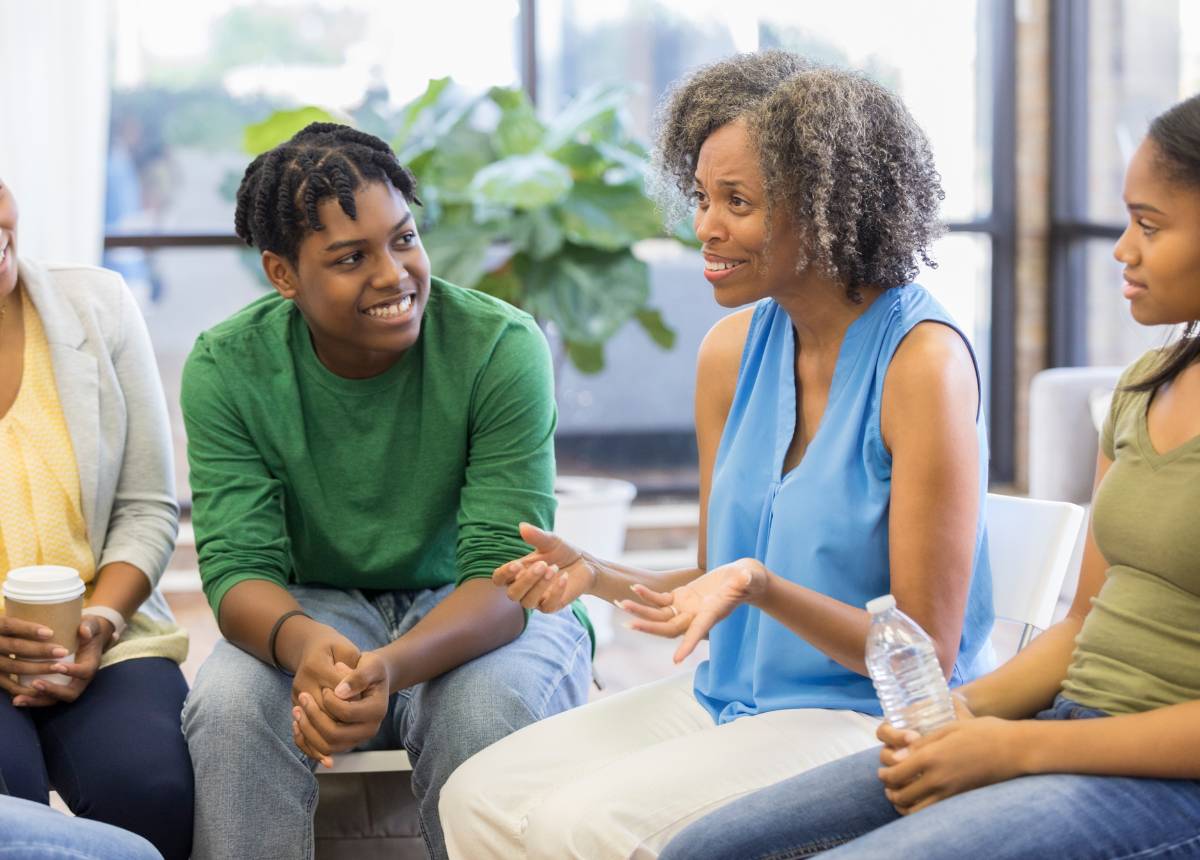
How could the system be improved?
People seeking asylum should be able to work, have access to better housing, and have a choice about where to live. There should be more LGBTQI+ accommodation, such as the ones that Micro Rainbow already provides. Trans people seeking asylum are especially at risk. LGBTQI+ people should be able to live and work safely. The process is so expensive, yet also so slow. The application system needs a time limit; people should be guaranteed an interview and a decision by a certain time. It’s so cruel to keep people waiting, in poverty, for years. The fact that the system is getting even slower since the pandemic is ridiculous.
LGBTQI+ people in immigration detention are not safe. They shouldn’t detain anyone; the use of indefinite immigration detention is inhumane. At the moment, people can be detained in these centres for months and even years. Their lives are in total limbo.
The system is terrible for everyone, but it especially harms LGBTQI+ people. Those seeking asylum should be able to work. Instead they are housed in Home Office accommodation, with nothing to do; the current system costs a huge amount, and no-one in this country benefits, financially, or otherwise.
We need a massive change in the way the media reports asylum; we need to change public opinion around it. We need a change in the asylum system. The whole process is broken.
What is the best thing about your job?
Well, my job shouldn’t exist. If we had a better, more humane system, my role wouldn’t be necessary! But as it is, I do the best I can. What I will say is that I have the most amazing team and support network around me. My colleagues are fantastic, and I couldn’t do this job without them.
Full breakdown of countries that the asylum bill considers ‘safe’ but are not safe for LGBTQI+ people
- Albania: In 2021 (the most recently published ‘experimental’ data)1 there were around five grants of asylum made by the UK to Albanians who were recognised as being at risk of persecution due to their sexual orientation.
- Brazil: Asylum claims based on sexual orientation are being made here in the UK, but the number of any grants is not provided in the published data. We are routinely contacted by Brazilians who fear return to their country, with good reason (see e.g. here and here).
- Bulgaria: This is not a source country for people seeking asylum in the UK, however there are also serious issues for LGBTQI+ people in Bulgaria (see here and Bulgaria was ranked last in acceptance of same-sex relationships in the EU in this 2019 survey).
- Gambia (in respect of men): Nine asylum claims based on sexual orientation were made here in 2021, there are no published outcomes for that year due to the low numbers involved, nor does the Home Office provide a gender breakdown, however the most recent data on appeals shows five appeals were allowed in 2018 and 12 in 2017.
- Ghana (in respect of men): Nine grants of refugee status were made in 2021 and 7 appeals were allowed for asylum claims based on sexual orientation. Again, there is no gender breakdown, however we have had male service users from Ghana who have been granted refugee status, including Adams in 2022. Ghana is becoming increasingly dangerous for LGBTQI+ people (see e.g. here and here).
- Hungary: The dangers to LGBTQI+ people in Hungary are well known, see e.g. here and here.
- India: In 2021 ten people from India claimed asylum based on sexual orientation, but there are no published outcomes due to the low numbers.
- Jamaica: Grants of asylum to people claiming on the basis of their sexual orientation have been made as recently as 2018 when 11 people were recognised as refugees by the UK.
- Kenya (in respect of men): In 2021, at initial asylum application stage, 33 people were recognised as refugees based on their sexual orientation, a gender breakdown is not published
- Malawi (in respect of men): Asylum claims based on sexual orientation have been made as recently as 2020 when five people sought refuge in the UK, however outcomes are not published due to the low numbers.
- Mauritius: The last published data on asylum claims based on sexual orientation from Mauritius show that seven people claimed in 2017. Same sex activity between men is criminalised in Mauritius, which contributes to a culture of discrimination against LGBTQI+ people.
- Nigeria (in respect of men): In 2021 there were 50 grants of asylum made to people based on their sexual orientation, and nine appeals were allowed. No gender breakdown is provided but we have male Nigerian service users who have been granted refugee status.
- Poland: As is the case with Hungary, Poland’s anti-LGBTQI+ stance is well known, for example see here and here.
- Romania: This is another European country where LGBTQI+ people face serious issues and discrimination, for example see here and here.
- Rwanda: Asylum claims based on sexual orientation are being made by Rwandans in the UK, but in low numbers such that the data is not published. In 2017 there were five appeals determined in asylum claims based on sexual orientation. Rainbow Migration has set out our concerns about proposals to send LGBTQI+ people to Rwanda here.
- Sierra Leone (in respect of men): In 2021 there were five people who were granted asylum in the UK based on their sexual orientation.
- South Africa: Asylum claims based on sexual orientation have been made, but in such low numbers that the data is not published.

